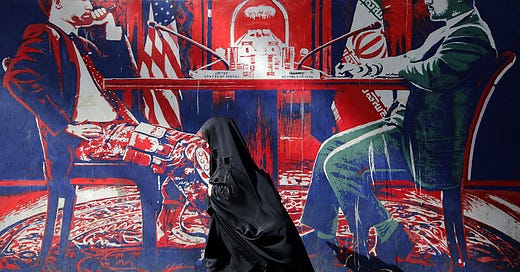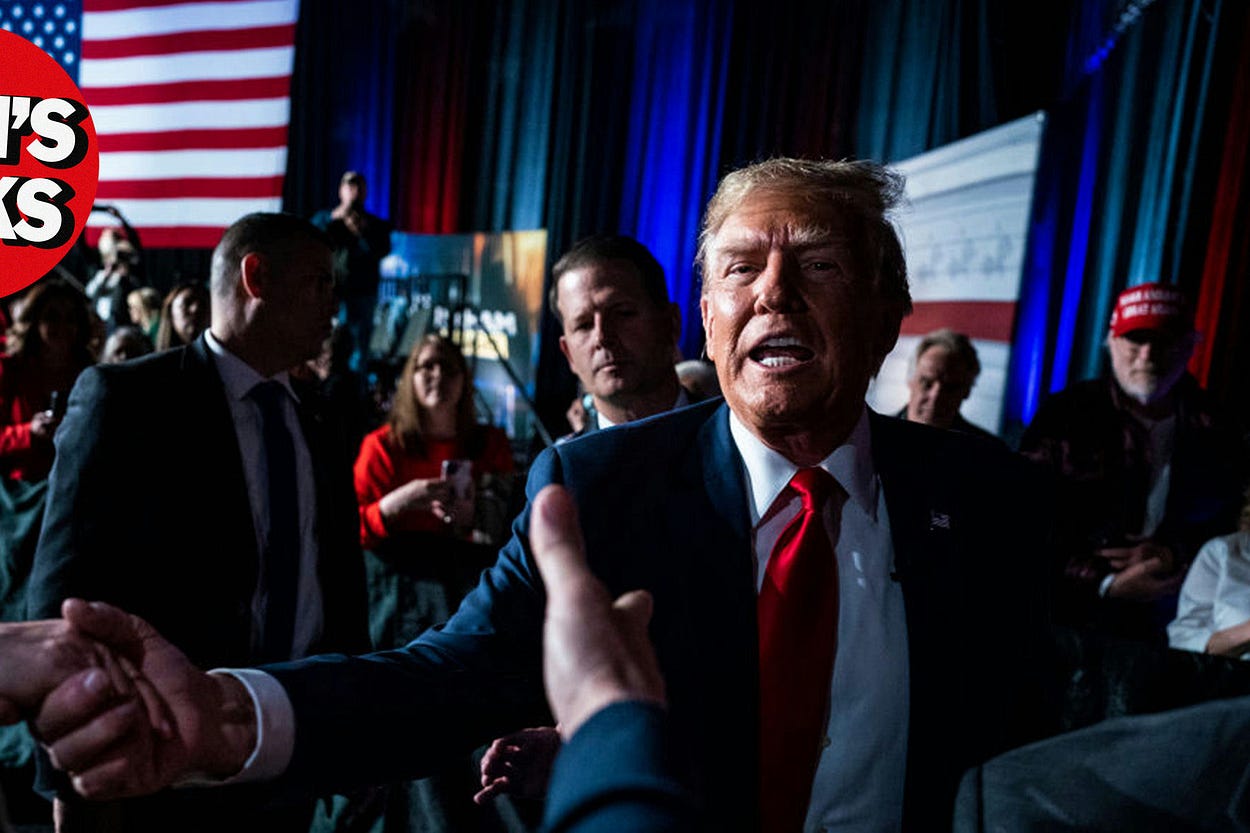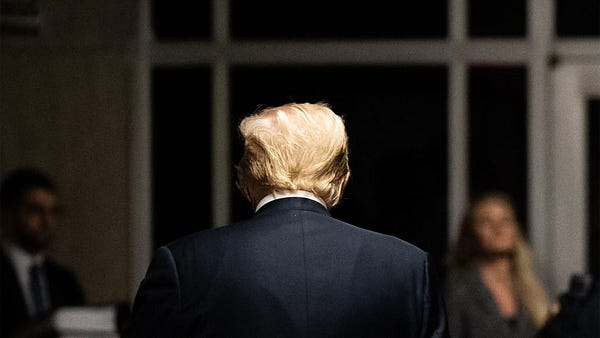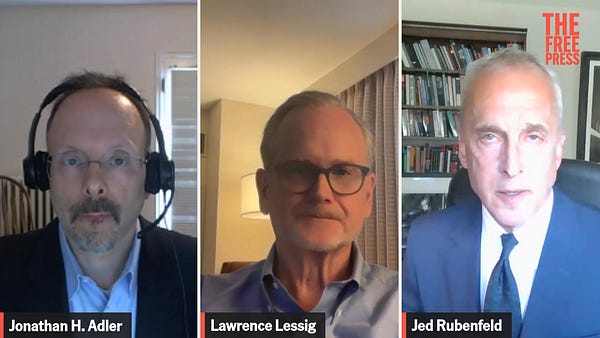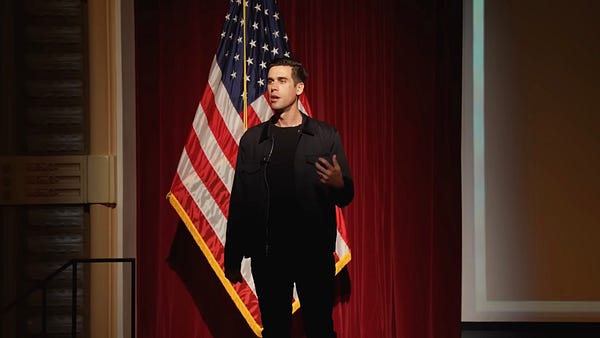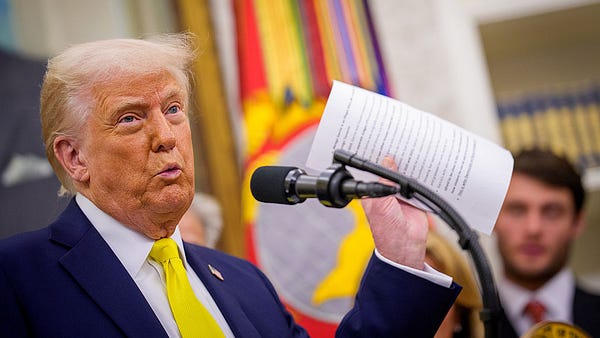
The Free Press

Here’s the good news. President Donald Trump is already growing impatient with the progress of the Iran nuclear negotiations that his chief envoy, Steve Witkoff, started only on Saturday. When asked Monday by reporters, he confirmed that the next round of talks are scheduled for next Saturday in Rome. “That’s a long time,” he said. “So I think they might be tapping us along.”
And here’s the bad news. Right after Trump expressed his frustration that the mullahs may be stringing out the talks, he said: “Iran has to get rid of the concept of a nuclear weapon. They cannot have a nuclear weapon.”
This may sound counterintuitive upon first read. Isn’t the whole point of Witkoff’s diplomacy to guarantee Iran will not build a nuclear weapon?
But a weapon is only the final phase of Iran’s vast nuclear-industrial complex. Specifically, weaponization refers to the construction of a deliverable warhead. In this respect, the fact that Trump did not say that Iran cannot have a nuclear program, which is what he insisted on when he scuttled Obama’s nuclear deal with Iran, is a red flag.
To understand why, it’s important to remember the last nuclear bargain—and why Trump blew it up. That deal was negotiated by former president Barack Obama’s administration along with Russia, China, Germany, France, and the United Kingdom. The final 2015 agreement required Iran to forgo a nuclear weapon, but it allowed Iran both the centrifuge cascades necessary for producing nuclear fuel as well as the ballistic missile system to deliver such a weapon if the regime in Tehran ever violated its agreements.
Back in 2018 when Trump pulled out of the 2015 nuclear deal, he explained the problem with this agreement himself. “In theory, the so-called ‘Iran deal’ was supposed to protect the United States and our allies from the lunacy of an Iranian nuclear bomb, a weapon that will only endanger the survival of the Iranian regime,” Trump said. “In fact, the deal allowed Iran to continue enriching uranium and—over time—reach the brink of a nuclear breakout.”
Trump has also consistently said that if there is no nuclear deal with Iran, then military action would be on the table. He went further on that point earlier this month in a meeting with Israeli prime minister Benjamin Netanyahu, when he said: “If it requires military, we’re going to have military. Israel will obviously be very much involved in that. They’ll be the leader of that. But nobody leads us, but we do what we want to do.”
On Monday evening Witkoff told Fox News that the aim of his negations was “to do something about enrichment.” He said: “They do not need to enrich past 3.67 percent.” Witkoff also said ultimately he wanted to reach a deal on verification that Iran’s enrichment was not for a nuclear weapon. “That includes missiles, the type of missiles they have stockpiled there, and it includes the trigger for a bomb.”
Yikes. Leaving aside the imprudence of announcing your real red lines at the start of negotiations, this appears to be a recipe for accepting a nuclear deal that is at best as weak as Obama’s in 2015. At least, that is the opinion of several hawks in Washington and inside the Trump administration. The problem is that in Trump’s second term so far, the “restrainer” wing has been ascendant. So while some administration officials, such as National Security Adviser Mike Waltz and Defense Secretary Pete Hegseth, have called for the dismantling of Iran’s nuclear program, it’s Witkoff and his team who are actually negotiating with the Iranians.
Mark Dubowitz, the CEO of the Foundation for Defense of Democracies and a fierce critic of the 2015 deal, told The Free Press, “Wouldn’t it be ironic if Trump ends up getting a worse deal than Obama? But I worry that it is a real possibility if the administration abandons the demand for full dismantlement and settles for no weaponization.”
The shame of it is that Obama never had this amount of leverage over Iran. Last year, Israel destroyed the regime’s strategic air defense systems, not to mention the leadership of Iran’s two strongest proxies: Hezbollah and Hamas. Iran’s economy is crippled, with inflation above 30 percent and a limping currency. So it’s baffling that the Trump administration would signal that they are open to a deal that allows an unpopular regime to keep its nuclear production capability.
Why offer Iran an opportunity to keep its centrifuges and ballistic missiles? Far better to press the advantage now and make Iran a Godfather offer. The mullahs can dismantle their nuclear program now in exchange for concessions—or America and Israel can do it for them.
This story has been updated to include Witkoff’s latest comments.
Today’s campus protesters owe their worldview to professor Edward Said, whose obsession with the West blinded him to the reality of the East. Read Eli Lake’s piece to find out how Said became “The Godfather of the Campus Intifada,” or listen to the podcast version below:

